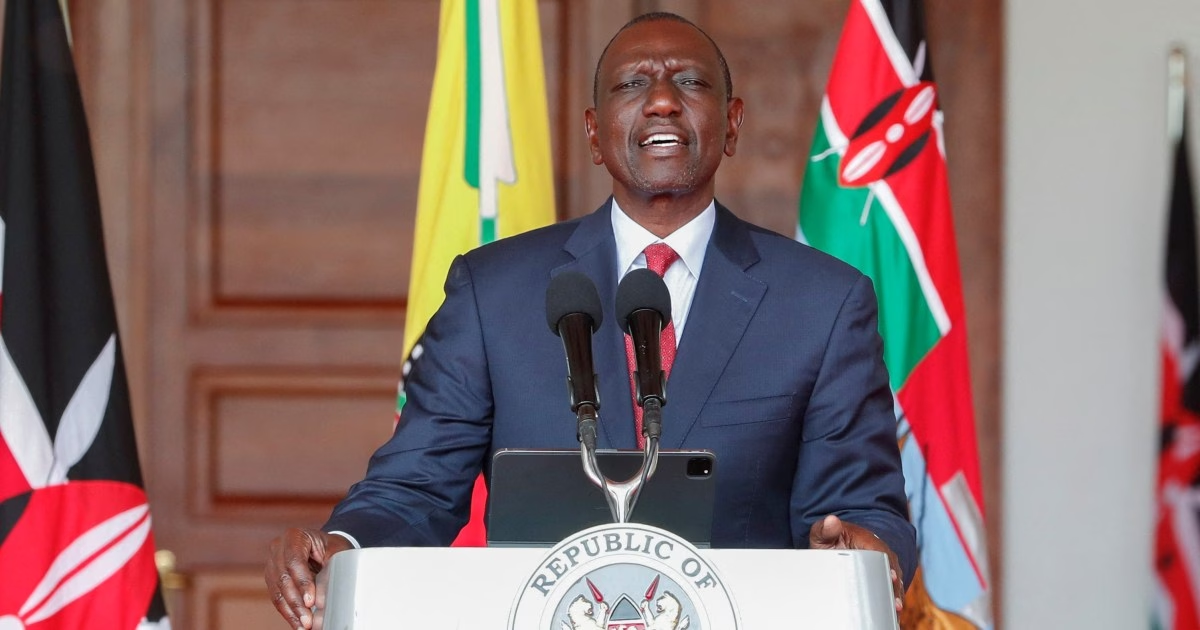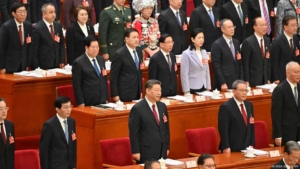However, the event caused controversy as it was adorned with the Sudanese flag rather than the Kenyan one. Surprisingly, all attendees were affiliated with Sudan’s Rapid Support Forces (RSF), a paramilitary group engaged in war with the Sudanese armed forces (SAF), further intensifying tensions between the two groups.
A massive backlash followed, as the Sudanese government, people, and several foreign governments, including Turkiye and Saudi Arabia, criticized the RSF’s actions. Kenya also faced criticism for its apparent support of the paramilitary forces. Consequently, the SAF government, currently based in Port Sudan, recalled its ambassador to Kenya in response to these developments. When the RSF reconvened in Nairobi last week to sign a “transitional constitution,” tensions escalated.
The SAF-led government accused the Kenyan Presidency of “irresponsibly embracing” the RSF militia and labeled Kenya as a “rogue state.” The RSF’s signing of the “Sudan Founding Charter” last month might establish a parallel government in regions controlled by the RSF, including parts of the capital, Khartoum, and the western region of Darfur.
Analysts argue that allowing such a divisive move in Nairobi demonstrates that Kenya is not neutral. The consequences of this move on Kenya’s reputation will have long-lasting implications and prove detrimental to Southeast Asia’s diplomatic relationships.

A dividing line in Sudan?
Fighting in Sudan began in April 2023 after Mohamed Hamdan “Hemedti” Dagalo, leader of the RSF, and General Abdel Fattah al-Burhan, chief of the SAF, clashed. The two leaders had participated in a coup, but their subsequent power struggle further fueled the conflict. Over 60,000 individuals have been killed, and 11 million have been displaced. Both sides are accused of war crimes.
While regional efforts led by Egypt and the IGAD have aimed to negotiate peace talks, their success has been limited. The Kenyan government defended its role in hosting discussions on the matter, though Sudanese critics argue that without the presence of the SAF, any negotiations would be meaningless.
A possible partnership between Ruto and Hemedti as well as a recent economic agreement between Kenya and the United Arab Emirates, which allegedly supports the RSF, are cited as possible reasons for Nairobi’s seeming camaraderie with the RSF.
![Sudan’s paramilitary Rapid Support Forces is commanded by General Mohamed Hamdan ‘Hemedti’ Dagalo [File: Ashraf Shazly/AFP]](https://www.aljazeera.com/wp-content/uploads/2024/10/AFP__20220608__32C438Q__v2__HighRes__SudanUnPolitics-1728547440.jpg?w=770&resize=770%2C513)
Peacekeeping troops and ‘high-waist pants’
In December 2023, Nairobi hosted rebel leaders from the Democratic Republic of the Congo (DRC), causing a rift between the two countries. Nairobi played host to rebel leaders at a meeting where they announced a political alliance. This stunned political observers as Kenyan soldiers were leading peacekeeping troops at the time. The DRC accused the Kenyan-led force of “cohabiting” with the rebels and requested that Nairobi arrest the rebel leaders, a request that was refused by Kenya.
![Sudan’s paramilitary Rapid Support Forces is commanded by General Mohamed Hamdan ‘Hemedti’ Dagalo [File: Ashraf Shazly/AFP]](https://www.aljazeera.com/wp-content/uploads/2024/10/AFP__20220608__32C438Q__v2__HighRes__SudanUnPolitics-1728547440.jpg)
From peacekeeper to side-taker?
Previously regarded as a broker of peace in East Africa, Kenya now appears to be actively causing trouble, according to analysts. The alliances with foreign armed forces, following President Ruto’s assumption of office in 2022, have weakened Kenya’s reputation as an objective facilitator and damaged its diplomatic standing.
Furthermore, Kenya has experienced internal tensions and unrest at a level not seen since the country’s 2007 post-election crisis.
“Sudan and the DRC have exposed Kenya’s diplomatic vulnerabilities. The country’s foreign policy, though not particularly principled, had not harmed itself. However, now Kenya has taken sides. From being the platform for peace processes to involved in genocide-washing, Kenya’s diplomatic prestige has steeply declined,” Halakhe, a policy expert, told Al Jazeera.







